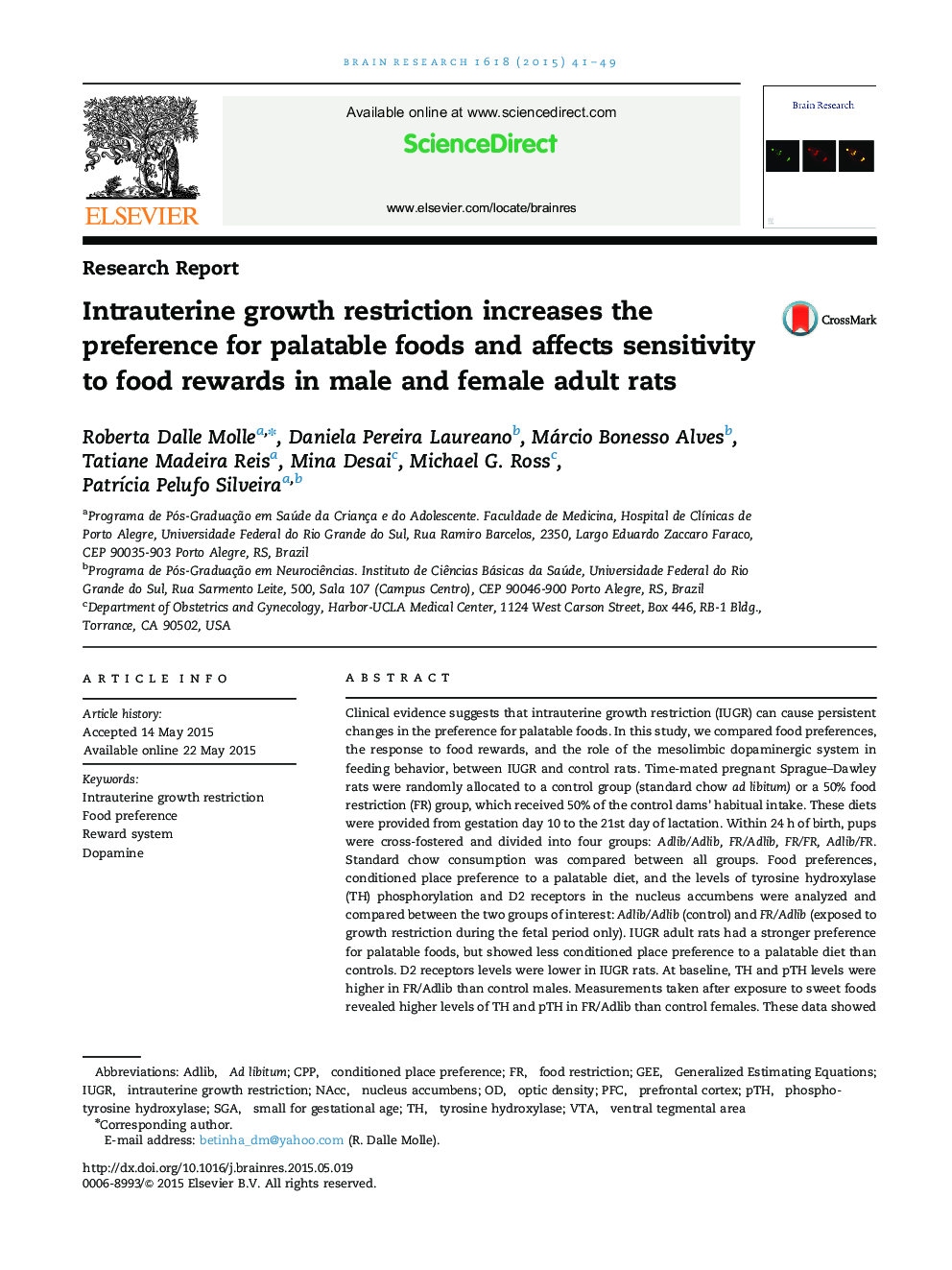| کد مقاله | کد نشریه | سال انتشار | مقاله انگلیسی | نسخه تمام متن |
|---|---|---|---|---|
| 6263052 | 1613821 | 2015 | 9 صفحه PDF | دانلود رایگان |
- Intrauterine growth restriction (IUGR) increases the preference for palatable foods in rats.
- This is accompanied by diminished conditioned place preference for this type of food.
- IUGR rats have decreased levels of dopamine D2 receptor in the nucleus accumbens.
- IUGR programs food preference which can lead to palatable food overeating.
Clinical evidence suggests that intrauterine growth restriction (IUGR) can cause persistent changes in the preference for palatable foods. In this study, we compared food preferences, the response to food rewards, and the role of the mesolimbic dopaminergic system in feeding behavior, between IUGR and control rats. Time-mated pregnant Sprague-Dawley rats were randomly allocated to a control group (standard chow ad libitum) or a 50% food restriction (FR) group, which received 50% of the control dams׳ habitual intake. These diets were provided from gestation day 10 to the 21st day of lactation. Within 24 h of birth, pups were cross-fostered and divided into four groups: Adlib/Adlib, FR/Adlib, FR/FR, Adlib/FR. Standard chow consumption was compared between all groups. Food preferences, conditioned place preference to a palatable diet, and the levels of tyrosine hydroxylase (TH) phosphorylation and D2 receptors in the nucleus accumbens were analyzed and compared between the two groups of interest: Adlib/Adlib (control) and FR/Adlib (exposed to growth restriction during the fetal period only). IUGR adult rats had a stronger preference for palatable foods, but showed less conditioned place preference to a palatable diet than controls. D2 receptors levels were lower in IUGR rats. At baseline, TH and pTH levels were higher in FR/Adlib than control males. Measurements taken after exposure to sweet foods revealed higher levels of TH and pTH in FR/Adlib than control females. These data showed that IUGR rats exhibited a preference for palatable foods, potentially due to alterations in their mesolimbic reward pathway. Additionally, the changes observed in the mesolimbic dopaminergic system of IUGR rats proved to be sex-specific.This article is part of a Special Issue entitled 1618.
Journal: Brain Research - Volume 1618, 27 August 2015, Pages 41-49
